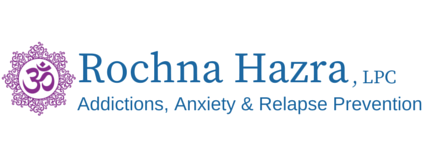Living or growing up in a family where one or more family members are addicted to a alcohol, prescription drugs or have compulsive behaviors can be challenging. We strive to cover up, bail out while trying to survive ourselves. Life feels confusing and sometimes insane. We love our family and want to help them, but our attempts to help them stop are rejected. Very often, we look back and see how living with an addict has changed us. We may see strengths, but often we see parts of us that we don’t really like.
- The Need to Control: We have a strong urge to control another person’s behaviors, decisions and actions. We tend to feel overwhelmed by the anxiety and worry over someone else’s problems. They give unsolicited advice, volunteer to take care of their problems and feel angry and used when our help and advice is rejected. There is a need to control those close to us, because when other people behave “sensibly” or “normally”, we feel okay. In fact, people pleasing and care-taking can be used as a means of control and manipulation. Alternatively, we tell others what they should or shouldn’t do violating another person’s boundary. One term that is used to describe these behaviors is Codependence. Whether you like this term or not, is not important. What is important is that you see and recognize how addiction has affected you and how you can regain charge over your life. Codependence can affect not only your emotional health but your physical health as well. The first thing that gets sacrificed is self-care. Actually, the codependent may not even notice when they cut out self-care. They become over invested in helping others and getting a particular outcome and overcommit in terms of time and energy. Anxiety is a huge problem for the codependent. The codependent has trouble relaxing and having fun because they cannot get rid of their anxiety. Martha is a 60 year old woman who works all day but is unable to sleep and rest at night because her son who has a drug problem is out partying. Martha lies in bed worrying that he would crash his car. On the nights that he is home, Martha has difficulty falling asleep because she is worrying how her son was going to hold onto his job, get rid of his drug habit and yet interestingly enough continues to “lend” him money to tide him over when he is short in cash. When she is tired and stressed in the morning, Martha becomes angry and resentful of her son. What she does not realize that she cannot control her son’s behaviors; she can only control and change hers. But this feels too unfamiliar, even alien. Also, when she does put her foot down, she ends up feeling guilty. So she just sighs and continues.
- Lack of Boundaries:
This brings us to the issue of Boundaries. A common outcome of living with an addict is to say “Yes” while meaning “No”. While it is normal to want to please someone you care about, you don’t think you have a choice. Saying “No” causes you anxiety, guilt or both. Some codependents have a hard time saying “No” to anyone. They go out of their way and sacrifice their own needs to accommodate other people. In fact, I have seen codependents become angry with someone who asks them for a favor. They believe that the person asking for the favor should know that this would inconvenience the codependent. What they fail to realize is they have the choice of saying “no”. Boundaries are sort of an imaginary fence between you and others. Notice that it is a fence and not a wall. It divides up what’s yours and what is somebody else’s. It refers not only to your body, money, and belongings, but also to your feelings, thoughts, needs and time. Typically, codependents have weak boundaries or no boundaries between themselves and others. They feel responsible for other people’s feelings and problems or blame someone else for the difficulties in your life. Lets reference back to Martha. Martha holds down a full time job and lives very much within her means. Every month, she likes to put away some money towards her retirement fund. However, when she “has” to lend money to her son, this becomes impossible. Martha feels angry and resentful of her son and thinks that he should not be asking her. What Martha does not realize that taking care of her finances is her problem not her son’s. On the other hand, Martha is constantly worrying about her son’s job. She gives him unsolicited advice about how to interact with his boss, nags him about going back to school to learn computers. In other words, she believes she knows what is best for her son. Again, a lack of healthy boundaries. Remember I described boundaries as a fence and not a wall. There is give and take, there is flexibility but what is mine is mine and what is yours is yours. Some codependents have rigid boundaries. They are closed off and withdrawn, making it hard for other people to get close to them. They have difficulty being open and close with someone in an intimate relationship. They fear being judged, rejected, or abandoned. On the other hand, they may fear being engulfed in a relationship and losing their space and autonomy. Very often Codependents flip back and forth between weak and rigid boundaries. - Low self-esteem:
Not feeling that you’re good enough or comparing yourself to others is a sign of low self-esteem. Typically, Codependents don’t take criticism well. When someone disagrees with them or gives them honest feedback, you become defensive. It is hard for you to see that it is only a difference of opinion and not a reflection or even a judgement of you. On the outside, you may manage to act reasonable, but inside you are upset. This is a shame-based reaction. Due to poor boundaries, the codependent absorbs the other person’s disagreement and views it as disapproval. - Perfectionism:
Low self-esteem, can make us strive us toward perfectionism. We begin to believe that if we are perfect, people will like and approve of us and and life would be smooth and easy. Thus, we begin the impossible mission of doing everything perfectly. The result? We become even more anxious and self- critical. We are afraid to take risks and go outside of our comfort zones. Low self-esteem also make relationships difficult for the codependent. Codependents need other people to like them and show their approval constantly. We are uncomfortable with disagreements and negative feedback hikes up our anxiety. We become lonely and sad if we are single for too long which can make overstay in relationships, even when the relationship is painful or abusive. - Victim Mentality:
Codependents often exhibit a victim mentality where they feel that they have no choice but to continue with life as it is. They say things like, “I am the only responsible one here”, “If I am not here, everything will fall apart”, or even “This is my lot in life”. By saying and believing these things, they remain resistant to change. In fact, they don’t believe they can change anything. When the situation becomes intolerable, some Codependents may leave a relationship temporarily (“to teach the addict a lesson”). They may even leave the relationship permanently only to enter a similar relationship with another addict. It is not uncommon for Codependents to go from one addictive relationship to another. Even when the partner is not addicted to a substance, Codependents create a very similar care taking, lopsided dynamic in their next relationship. Thus the cycle continues. For the codependent, they have a need to feel righteous and believe that they are selfless by neglecting and ignoring their own needs. This goes back to the low self-esteem that plagues the codependent. They need to sacrifice more so they feel good enough about themselves. - Denial:
A major challenge in getting help for codependency is Denial. Denial about what? Denial about the seriousness of the addiction your loved one is suffering from; Denial about your inability to control another person and fix their addiction; and Denial about how unmanageable your life has become in trying to control and fix what is not in your control, and Denial about how Addiction has affected your physical and emotional health as well as damaged your relationships. Denying your own feelings and needs has become a way of life. In fact, you may be so used to numbing your feelings and being focused on other people that you may be unable to really tell what you are feeling in the first place. The same goes for your needs. You pay attention to other people’s needs and not your own. Although some codependents may seem needy, others act like they’re self-sufficient when it comes to needing help. They won’t reach out and have trouble receiving. They are in denial of their vulnerability and need for love and intimacy. In denying their own feelings or needs and in their inability to control another person, Codependents often becomes Addicts themselves. They start to use substances like food, shopping, alcohol or anti-anxiety medications to manage and suppress needs and feelings. Thus, as you can clearly see ignoring the problem is not the solution. Like addiction, codependency is a progressive disease that spreads and seeps into more and more areas of your life.


Leave A Comment